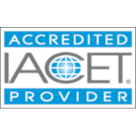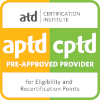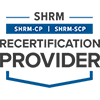Product Details
Topics Covered
- Leadership in the nonprofit sector
- Purpose-driven leadership
- Types of Board Structures
- Lifecycle of a board
- Fiduciary duties
- Effective governance
- Board succession planning
- Board assessments
- Maintaining a Board/CEO Relationship
- Managing problematic CEOs
- Accepting and managing conflict
- Key ethical issues
- Diversity in leadership
- Ethical policies
- Conflict-of-interest policies
Key Features
- Mobile-friendly
- Audio-enabled
- Badge and credit-awarding
- Real-world case studies
- Fully accessible
- Games & Flashcards
- Expert-supported
- Video content
Course Preview
Course Description
Learning Outcomes
- Identify different nonprofit board structures and explain how each structure interacts with leadership
- Describe different approaches to board governance
- Explain the key stages of a nonprofit board's life cycle and describe the primary activities of the board at each phase
- Understand what makes an effective board assessment and analyze the results
- Summarize some of the key ethical issues facing nonprofit leaders and describe how the board can prevent ethical lapses in leadership
- Explain how nonprofit board members ensure that legal and ethical standards are followed in their organization
- Understand the key elements of a conflict-of-interest policy and identify other ethical policies a nonprofit should use
- Describe the relationship between the board and the CEO and identify the factors associated with a healthy board-CEO relationship
Notes
This course has an "Ask the Expert" feature, which submits your questions directly to an expert in the field you are studying. Questions are answered as quickly as possible and usually within 24 hours.
As an Accredited Provider, MindEdge offers for its learning events that comply with the Continuing Education and Training Standard.
Learners must achieve an average test score of at least 70% to meet the minimum successful completion requirement and qualify to receive credit. Learners will have three attempts at all graded assessments.




